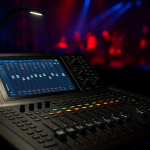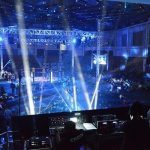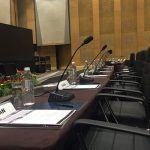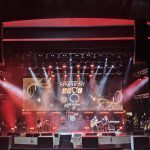Key Takeaways
- Concert sound systems: are essential for delivering high-quality audio, ensuring every attendee hears the performance with clarity – regardless of their location in the venue.
- A professional setup: includes components like microphones, mixers, amplifiers, speakers, subwoofers, and stage monitors – each playing a crucial role in sound precision.
- Different types of systems: – from PA and line array systems to DJ and portable setups – cater to various event scales and needs.
- Setup and calibration: must account for venue acoustics, audience layout, and sound testing to ensure optimal audio delivery and eliminate feedback or distortion.
- In Malaysia: concert audio services must comply with regulations, including noise limits, permits (e.g. PUSPAL), and cultural performance guidelines.
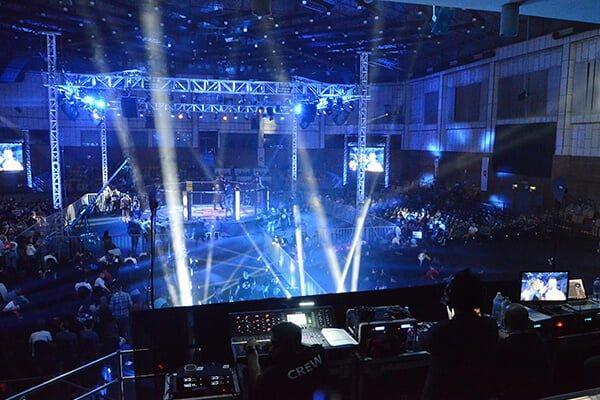
Concerts have the power to create enduring memories. However, a memorable event is influenced by the crowd’s enthusiasm, the performer’s artistry, and the sound. The sound quality has the power to create or ruin the experience.
Whether it’s a jazz concert or a rock concert, a sound system is mission-critical to delivering the desired emotional effect. In fact, distorted audio, inconsistent levels, or insufficient coverage can swiftly degrade an artist’s performance.
Conversely, a well-designed sound system combined with event lighting rental enhances every element of the performance – allowing the audience to appreciate the subtleties of the music. This article aims to provide a guide to professional concert systems in Malaysia that can make any concert memorable. So, without further ado, let’s get started!
Table of Contents
ToggleWhat is a concert sound system?
A concert sound system is an advanced combination of electronics, software, and hardware intended to record, mix, amplify, and replay sound during live performances with precision and clarity.
Its main responsibility is to ensure that – regardless of their location in a concert venue – all audience members receive audio with consistent fidelity and intensity.
Key components of a sound system
To create an immersive and captivating concert experience, sound systems combine multiple components to ensure that every vocal detail is transmitted with precision, namely:
- Microphones: Microphones convert sound waves into electrical impulses, serving as the foundation of the sound system. Depending on the application, various types of microphones can be utilised. For example, condenser and dynamic microphones.
- Mixers: Mixers combine multiple audio streams from instruments or microphones into a single output. They ensure a well-balanced sound mix by allowing for dynamic adjustments to tone, effects, and volume.
- Amplifiers: These devices enhance the audio signal coming from the mixer and boost speaker output to ensure the sound is loud enough to reach the audience.
- Equalisers: Equalisers are used to modify the sound system’s overall frequency response. In practice, they assist in reducing feedback in monitor systems or flattening the frequency curve to match the room’s acoustics.
- Speakers: These devices provide the listener with the finished audio output by converting electrical impulses back into sound waves. Various speaker types—including surrounds, subwoofers, and front speakers – may be employed based on the event’s specific needs.
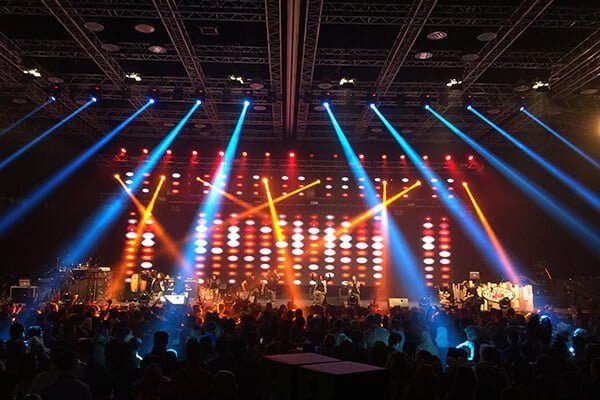
Types of sound systems
Sound systems are typically categorised based on their application and functionality, each designed to meet specific needs in various settings. For instance:
- PA Systems (Public Address Systems): Public address systems, also known as PA systems, are ideal for announcements, speeches, and small-to-medium-sized events. Typically comprising loudspeakers, mixers, and microphones, they deliver crystal-clear audio to ensure that messages are conveyed effectively.
- Line Array Systems: These are sophisticated loudspeaker arrangements primarily used in large-scale events, such as auditoriums, festivals, and concerts. In practice, they are composed of several similar speaker pieces arranged vertically to provide a uniform and consistent audio experience for large audiences.
- Portable Sound Systems: These are compact, battery-powered devices suitable for small concerts, outdoor setups, or mobile use. They are easy to transport and configure, making them ideal for events requiring quick deployment.
- DJ Sound Systems: These systems are specifically designed for music playback and mixing. They often include high-powered speakers, subwoofers, mixers, and turntables or controllers. This equipment combination enables them to deliver powerful bass and clear audio—essential for high-energy music events.
- Surround Sound Systems: Surround sound systems produce a 360-degree audio environment. They are ideal for immersive events, such as movie screenings or multimedia presentations.
- Wireless Microphone Systems: These enable speakers to move freely without being connected to a microphone cord. They are crucial for panel discussions or performances that require mobility.
- Subwoofer Systems: Subwoofer systems are uniquely designed to improve a sound system’s low-frequency response. They are essential for creating an immersive experience at music-heavy events – thanks to their large drivers and specialised enclosures.
- Stage Monitor Systems: Stage monitor systems enable artists to hear both themselves and other musicians clearly during live performances. By allowing real-time sound monitoring, stage monitors enable performers to maintain their timing and pitch throughout performances.
Concert sound system set up and configuration
To effectively set up and configure concert sound systems, a methodical approach is necessary for the best outcome. For instance:
Plan the sound system layout
For starters, assessing audience arrangement and venue acoustics is fundamental. Sound waves propagate differently depending on the size, shape, and materials of the venue.
For instance, concrete walls and draped walls might necessitate changes to speaker placements and types.
Furthermore, outdoor venues may require more powerful systems, whereas indoor areas may need acoustic treatments to reduce echoes. Speaker coverage is also influenced by the size of the audience and the seating configuration. For example, small gatherings (100–200 people) may employ simple full-range speakers, but arenas require line arrays or delay speakers to guarantee uniform sound delivery.
Equipment placement and calibration
Achieving high-quality sound also requires careful calibration and placement of the equipment. To successfully cover the audience area, speakers are typically tilted downward to direct sound toward the audience. Relatedly, on stage, monitors are positioned below microphones to reduce feedback.
Furthermore, the type and purpose of the microphones determine where they are placed. For example, directional microphones are typically leveraged to reduce stage noise. Crossover points are also set between the subwoofers and main speakers to avoid frequency overlap.
Test and optimise sound quality
Testing and sound quality optimisation cannot be overstated when deploying a concert sound system. To prevent clipping, sound tests involve systematically lowering the mixer’s main volume and gradually increasing it while monitoring the levels.
Sound checks help maintain ideal signal-to-noise ratios, sustain optimal preamp gains and eliminate feedback-prone frequencies – in real-time. This consequently ensures consistent sound quality and quickly resolves any technical concerns before the concert.
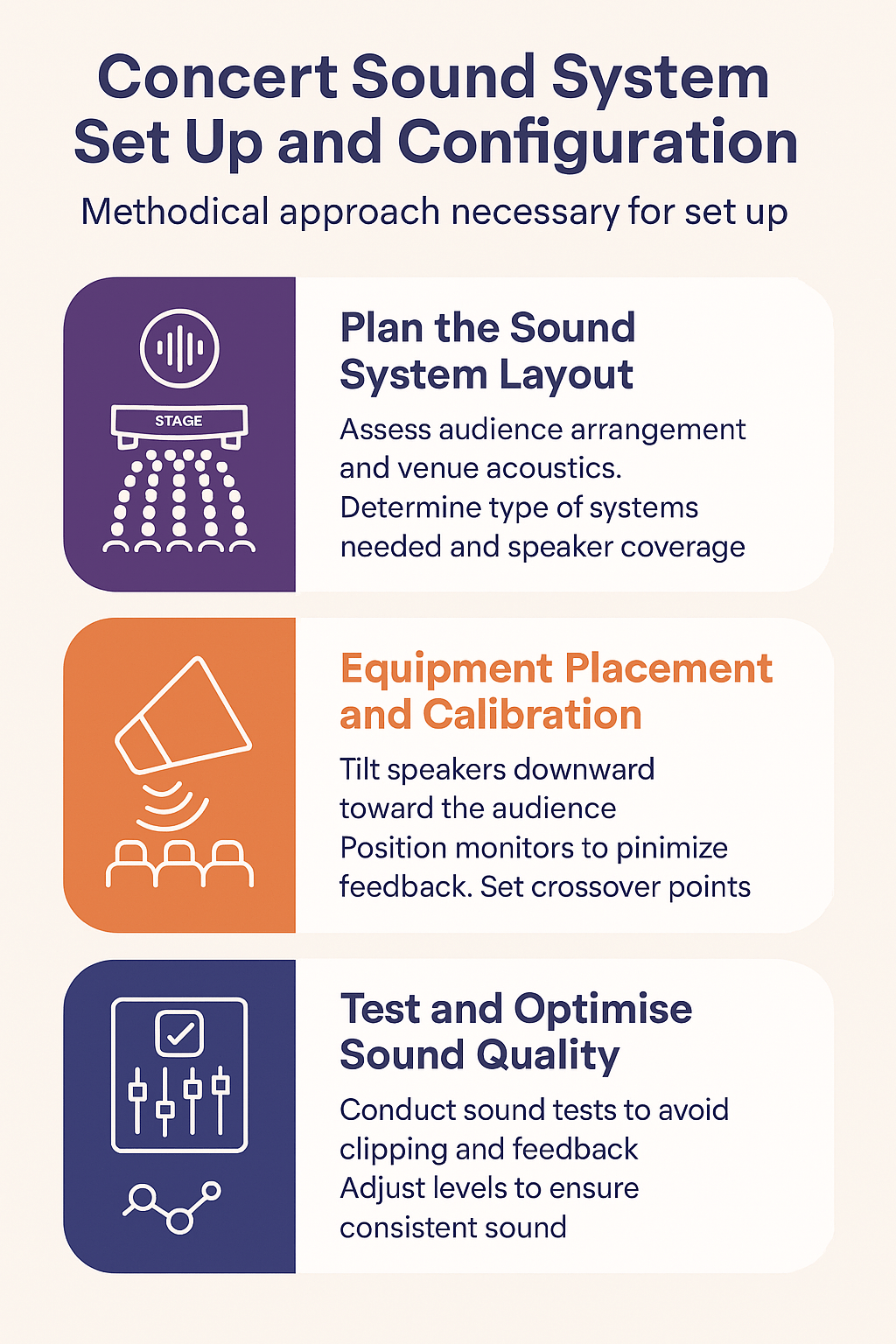
Malaysian regulations for concert sound systems
Malaysia maintains specific regulations for concert sound systems, such as:
- Compliance with noise regulations: The Department of Environment stipulates guidelines for measuring and labelling noise emissions from sound systems used in concerts. As part of their licensing conditions, these guidelines ensure that concert noise levels don’t exceed permissible limits to protect public health.
- Obtaining necessary permits: Local municipalities require concert promoters to seek permits. Concerts featuring international performers require permission from the Central Agency for Application for Filming and Performance by International Artists (PUSPAL). This entails following particular rules and conduct standards. For instance, when playing music that is protected by copyright, organisers must obtain music licenses from the relevant organisations.
- Adhering to new guidelines for concerts in Malaysia: Several new performance guidelines have been instituted across Malaysia. For example, performance dates on religious holidays are restricted. Furthermore, performers must adhere to certain dress codes to honour religious and cultural sensitivities. To reduce drug use, certain states are putting up signs that read “No to Drugs” at performances.
Concert sound system price in Malaysia
Concert sound system prices in Malaysia vary based on the event’s components and size. Portable PA systems and basic sound system installations cost considerably less than more sophisticated equipment for large crowds.
Concert planners must account for labour, setup, and transportation costs in addition to the initial equipment rental costs. Heavy sound equipment transportation can be very expensive – particularly for large events that require multiple trucks and handling crews.
Sound engineers and technicians who operate equipment during large events may charge more than those operating at small events. Additional expenses associated with obtaining the necessary permissions and complying with noise regulations may also impact the total budget.
Also read: How to Choose the Right Sound System for Your Concert Size and Venue
Concert sound system rental prices
Overall, the cost of renting a concert sound system in Malaysia varies according to the setup’s size and complexity. Although exact rates are often tailored to meet event demands, larger events inherently require more sophisticated equipment. This can significantly increase expenses.
Furthermore, rental packages often include services such as delivery, setup, and technical support, which increases the total cost.
How to choose professional concert sound system services in Malaysia?
To ensure high-quality audio, selecting expert concert sound system services in Malaysia requires consideration of several key factors. For instance:
- Venue layout and audience size: The type and scale of the sound system required depend heavily on the venue’s layout and crowd numbers. So, ensure the service provider can accommodate the crowd size and the venue’s potential acoustic limitations.
- Credibility and Professionalism: Identify a business with a solid reputation and extensive expertise. A professional service provides reliable equipment, knowledgeable personnel, and flexibility in the event of unforeseen problems.
- Quality of Equipment: Ensure the provider supplies state-of-the-art equipment that can be customised to meet your event’s specific requirements.
- Technical Support: Seek out a business that provides comprehensive on-site technical assistance—covering setup, calibration, and real-time monitoring.
Concert sound system companies in Malaysia
DOREMi is the leading provider of concert sound systems in Malaysia. We provide full-service sound solutions that address everything— from handling the technical requirements and equipment of the artists to power sources and stage sizes.
The emphasis is on the importance of lighting and audiovisual equipment in creating the ideal ambience, tailoring solutions to meet specific event requirements.
Conclusion
Poor sound quality can ruin a live performance or concert. It can make it harder for listeners to get completely absorbed in the experience. This not only detracts from the audience’s enjoyment but also reflects poorly on the artists and event planners.
To prevent such problems, it is strongly recommended that you consult with a seasoned event production company like DOREMI. Our professionals can evaluate the space, understand the specific requirements of the event, and plan the sound system accordingly.

